Michael Mueller, CEO of Valora, looks back on 2019. Winning the SBB tender was one of the milestones. In the interview he explains what it means for the future direction of the company and how Valora has developed overall.
Michael Mueller, how was the 2019 financial year for Valora?
Valora exceeded expectations with operating profit of CHF 91.5 million and an EBIT margin of 4.5%. External sales remained stable. However, we did post +2.2% growth in the foodvenience categories – excluding press, books and tobacco – mainly due to food sales. That is a very pleasing result that reflects our strategy.
You attracted a lot of interest with the launch of the cashier-free avec box in spring 2019.
We presented the most modern convenience store in Switzerland. It was our first step towards sales outlets enabling autonomous shopping as a complement to our current formats at selected locations. Following the initial pilot in Zurich main station, we have been accumulating further experience since September with the avec box at ETH Zurich. These tests show how we can use digitalisation to be innovative and improve the retail experience for customers.
What feedback have you had so far?
We have received very positive and valuable input. Customers particularly like the product selection and the simple and fast purchasing process outside normal opening hours. We have used the customer feedback to further optimise the app and background systems. The development is still not complete. In parallel, we are working towards auto-checkout concepts to make shopping still more convenient.
What were some other highlights in 2019?
The main story was the SBB tender. There were 262 kiosk and convenience sites on offer, not only did we secure the 231 stores we already run but we gained an extra 31 as well. In doing so, we saw off strong national and international competition and leveraged our strengths: unique experience in small-scale retail at highly frequented locations and food competence combined with our innovativeness and feel for market trends.
”At the 262 SBB sites secured until 2030, we will convert a lot of the kiosks into convenience stores with a higher food component and we will also have more food at k kiosk.”
What was the significance of this tender for Valora?
We have now secured these important sites until 2030. That means we remain Switzerland’s leading kiosk operator. At the same time, we can really expand the convenience part of our business and increase awareness of our avec brand. The number of avec stores at SBB locations will increase when we convert the k kiosk sales outlets and, adding the new sites, grow from currently 32 to about 140 by 2021. In addition, the remaining k kiosk sales outlets at SBB locations will be completely overhauled. We plan to invest about CHF 70 million in modernisation and conversion work over the next two years and the plan is to have finished work on all locations by 2021.
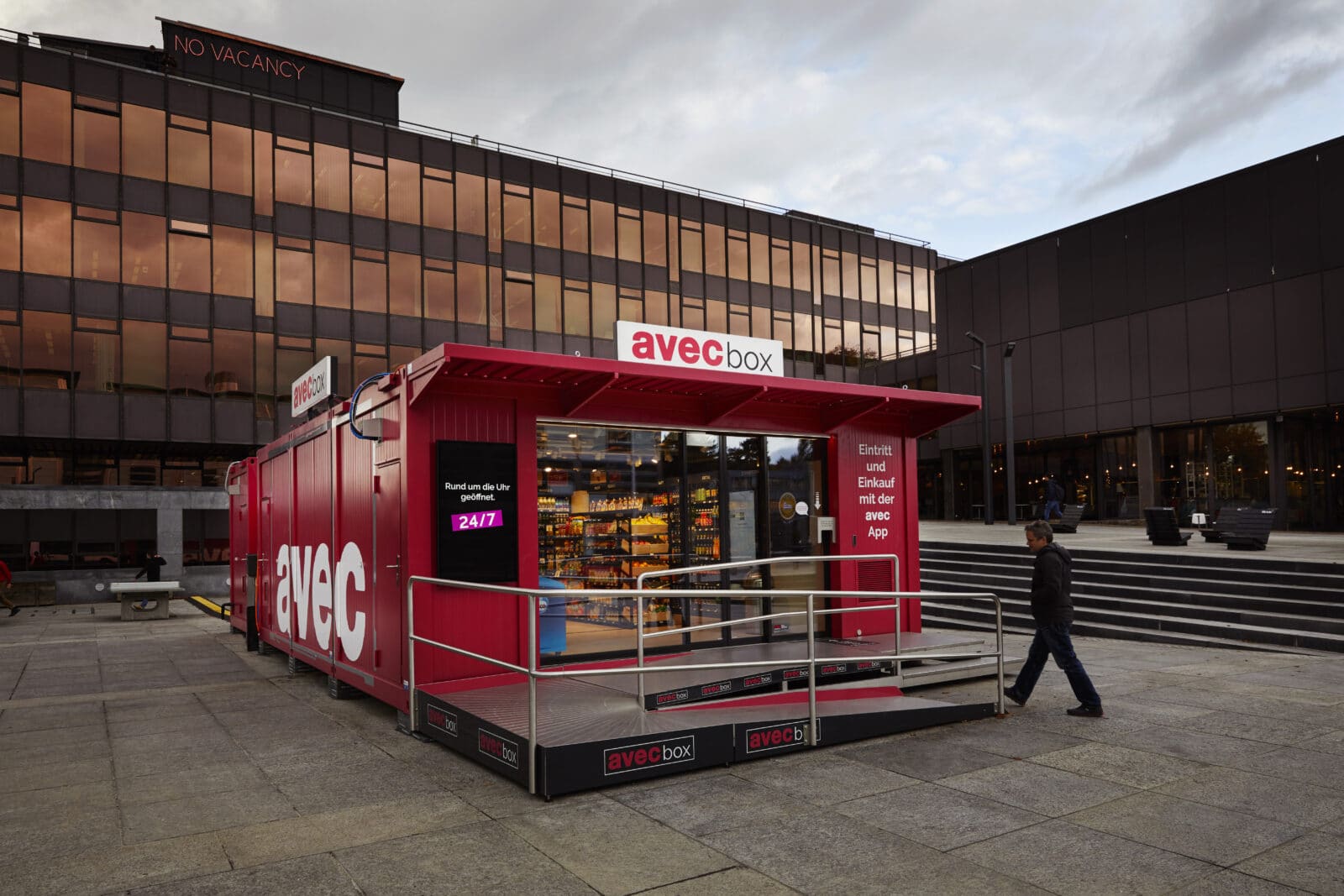
avec box 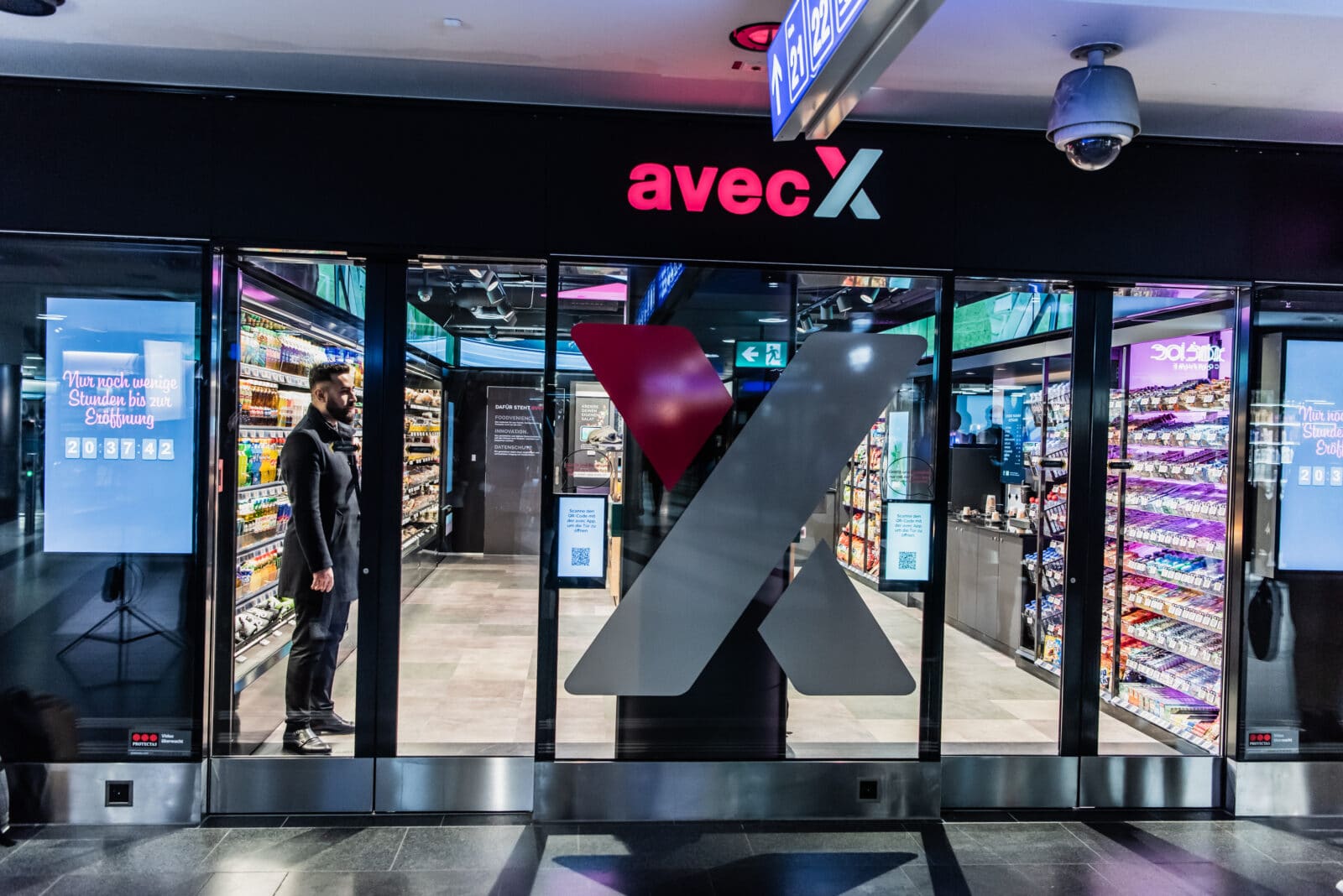
avec X 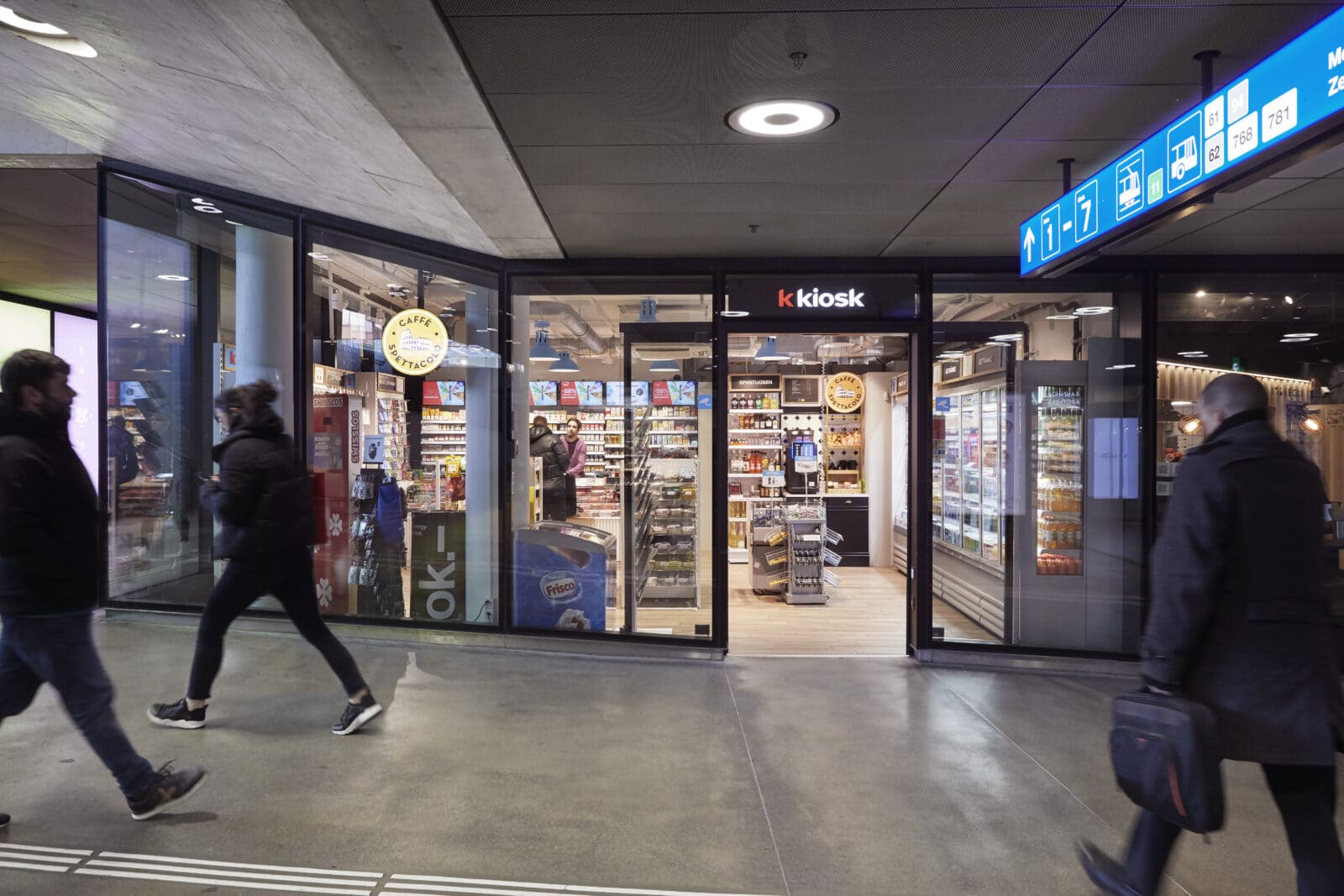
k kiosk
Rents for Valora will increase significantly.
Future rents for the convenience stores are in line with more recent comparable leases; the rents for the kiosk sites will substantially increase. However, we will convert a lot of the kiosks into convenience stores with a higher food component. We will also have more food at k kiosk. The adjusted range will have a positive effect on the gross profit margin. Besides, customer frequency at SBB stations has grown by +1.5% on average over the past four years and is set to rise further still. That provides valuable impetus for sales growth.
What makes you so confident?
Macrotrends such as society’s growing preference for smaller households, increased mobility and the associated on-the-move consumption all support our business model. Given our dense sales outlet network at highly frequented locations, we are at the heartbeat of society, i.e. where the customers want us to be. We can meet the growing demand for fast, fresh meals and snacks through our foodvenience offering. Our new 2025 strategy is based on that. We finalised and communicated the strategy following the successful SBB tender. Having focused on our core business, we are now in a new, growth-oriented phase centred on food as the key to success.
”Given our dense outlet network at highly frequented locations, we are at the heartbeat of society, i.e. where the customers want us to be.”
Is the significance of food already apparent in the figures?
Food grew by approximately +3% per year between 2013 and 2019 and the higher-margin food business has since become Valora’s main gross profit driver. It accounted for a total of 37% of external sales in 2019 and 53% of gross profit. We want to continue that development. We have renewed all formats in recent years, optimised the range through a higher food component and strengthened our expertise in food production. The expansion of pretzel production for trading partners (B2B) is also significant.
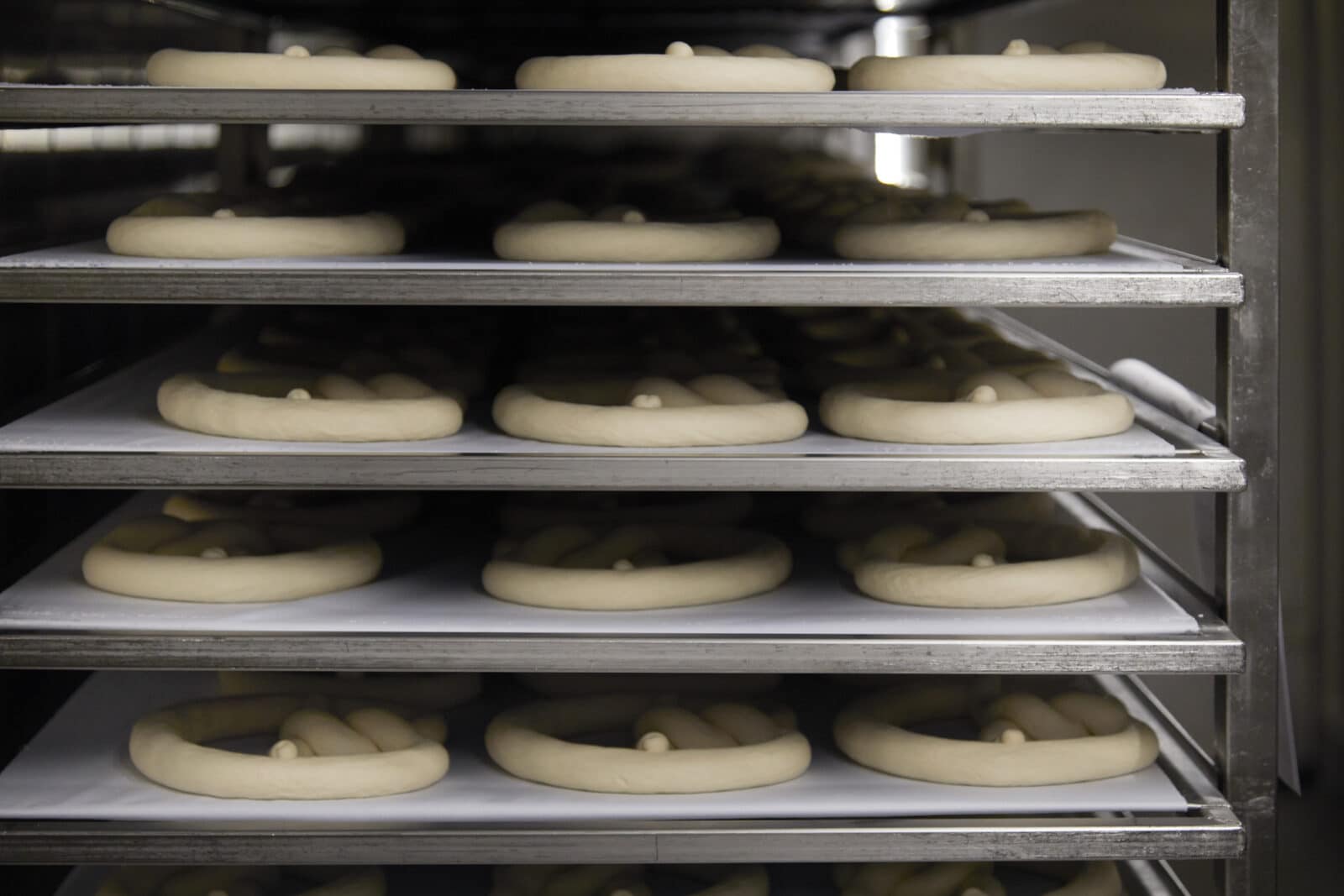
Valora invests a lot in pretzel production. What is your position regarding that?
We are investing about EUR 50 million in capacity expansion in Germany and the US, the world’s biggest pretzel markets. We have had a new production line in operation in Oranienbaum since October 2019. It is already highly productive and well utilised. We also increased the efficiency at our current facilities. The new line in the US has been operational since the end of 2019, in spring 2020 we will have another production line in operation in Oranienbaum. The 20% capacity increase in Germany is necessary to meet the high market demand. When the work is done, Ditsch will operate 15 modern pretzel production lines with over 800 workers. We therefore expect a big increase in B2B sales volumes for 2020.
What is behind this high demand?
It stems directly from the growth in out-of-home consumption. Pretzels are a convenient baked snack to enjoy when on the move. We are also tapping into new sales channels as pretzels become better known, including in the US. Pretzel production is also often outsourced as a niche in the baked goods market. Ditsch pretzels are popular, we see that for example with the 100-year anniversary we celebrated in 2019. Pretzel production in Germany increased on average by +3% per year between 2012 and 2018, while Ditsch increased its volume on average by +10% per year between 2012 and 2019. In our annual survey, the B2B customers again referred to the high product quality, innovativeness and advisory competence.
”With the capacity expansion of our pretzel production we expect a big increase in B2B sales volumes for 2020.”
And how do the Valora formats benefit from the expansion in production?
In 2019, over 10% of the 700 million pretzels we produced went to Valora formats. In future, we want to sell even more of our own products through our own formats and incorporate our innovation. That corresponds to our objective of more vertical integration in the value chain. The same principle applies to the ok.– own brand. We also want to include more of our fresh product know-how from BackWerk in other formats.
You merged the Ditsch B2C format with BackWerk organisationally in 2019. What was the outcome?
We separated the B2C Ditsch format organisationally from the production and B2B business and integrated it with BackWerk into the new Food Service Germany business unit managed out of Essen. Having completed the merger successfully, we clustered the expertise and created a platform to facilitate further growth. We also make better use of the resulting B2C synergies. We have already initiated a combined logistics platform to reduce costs and optimise purchasing conditions. An efficient logistics chain not only adds efficiency, it also helps us grow. We have increased supply chain capacity for our Food Service Switzerland business unit and integrated all the formats into one logistics operation to improve margins.
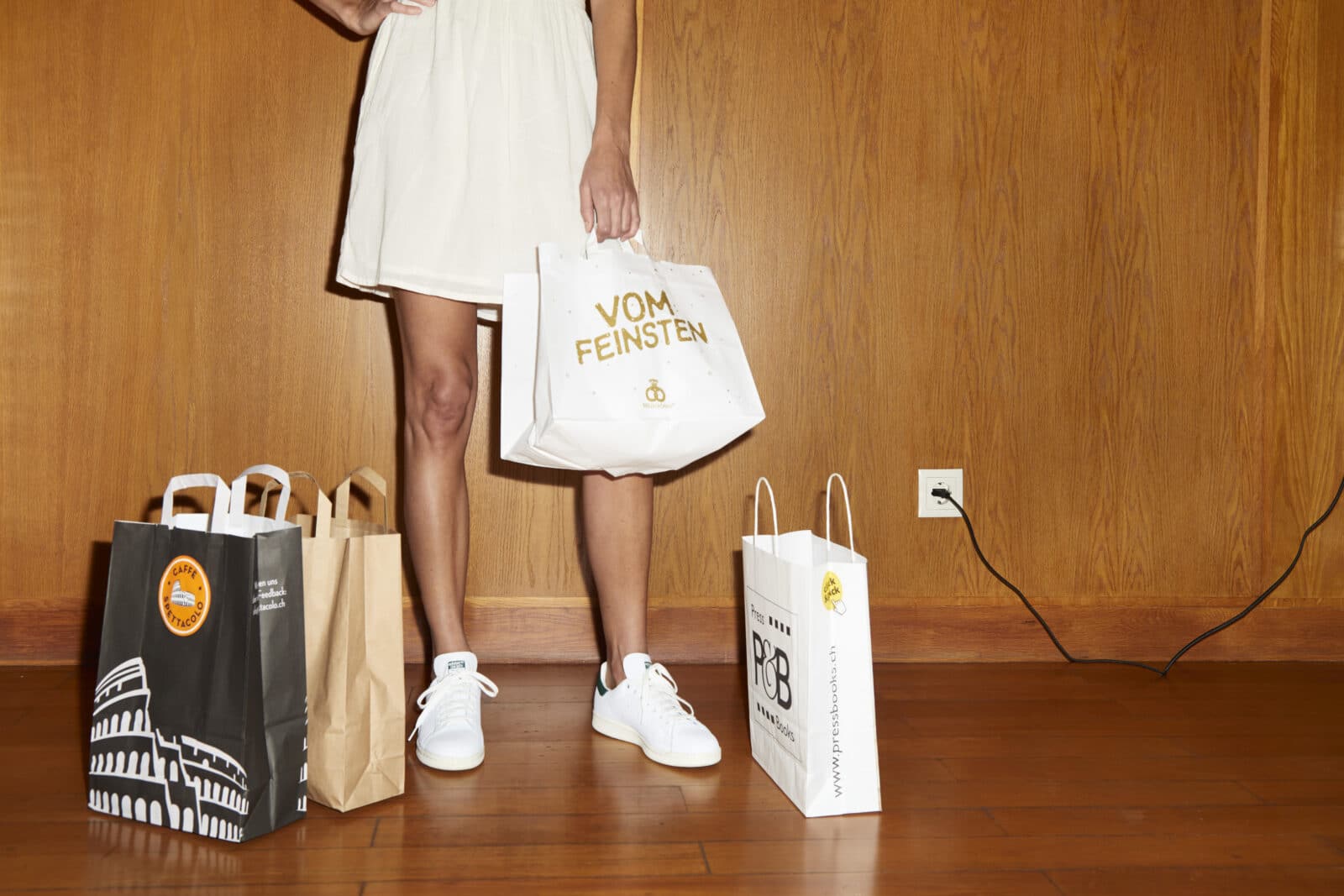
How did your Food Service business develop overall in 2019?
The Food Service division had a successful year. The B2B / Production unit posted record sales with +15.5% growth and gained important market share. The B2C units, especially Food Service Switzerland, posted respectable same-store growth. Food Service Germany also benefited from the initial synergies following the merger and further optimised its sales network at the same time.
How about the Retail division?
Accounting effects (IFRS 16) and project costs from the SBB tender impacted the profitability of Retail Switzerland. Otherwise, following an outstanding 2018, we had lower same-store sales, especially in press and tobacco, combined with higher costs related to the new convenience and kiosk concepts. Retail Germany incl. Luxembourg and Austria, on the other hand, enjoyed solid same-store growth. Even if press products in Germany remain under pressure, the decline was less pronounced in 2019. The cost-saving programme also bore fruit and the unit made good progress in converting its own stores into franchise operations.
So it was a good year in spite of Retail Switzerland?
It is remarkable that we were able to offset the challenges faced by Retail Switzerland with the positive development of Retail Germany and Food Service.
Besides press products, tobacco is under pressure as well. Why is that?
People smoke considerably fewer cigarettes these days. We do nevertheless expect tobacco to make a stable contribution to profit over the next few years. Tobacco continues to provide high frequency and sales in our stores. Our dense network of retail formats at highly frequented locations is also a popular promotion platform. Take, for example, the sale of the increasingly sought after alternatives, such as heat not burn or e-smoke products. We saw unprecedented demand for these products in 2019, but they still remain a niche within the tobacco category where they account for around 5% of sales.
Did you also increase efficiency in Retail in 2019?
We did make the Retail division more agile by realigning the management structure. The cross-market roles were merged, which clustered important skills in category and in supply chain management, purchasing and marketing. The expansion of the agency model in Switzerland and the franchise operations in Germany will also bring more efficiency.
Were there any other organisational changes in 2019?
We strengthened the extended Group Executive Management with the addition of Monika Zander, who is in charge of the Food Service Switzerland business unit. The Valora CFO left the company for personal reasons at the end of November. We strengthened the Board of Directors by adding two people: the food-retail and franchising expert Insa Klasing and the retail and supply chain expert Sascha Zahnd, part of the Tesla leadership team. mobilezone CEO Markus Bernhard, eBay top manager Karin Schwab and Suzanne Thoma, CEO of BKW AG, will also stand for election at the 2020 Annual General Meeting. The long-serving directors Peter Ditsch, Markus Fiechter and Cornelia Ritz Bossicard will step down at the General Meeting on completion of the last strategy period.
You have been directly responsible for the digital area since 2019. How is that going?
We founded the Digital Product Development unit in the early summer. We are building our technological competence through the new unit and developing new solutions for customers, operations and organisation. Although work has already started before, the autonomous store models have taken centre stage. The team has also upgraded the k kiosk loyalty app into which other brands can be included in future. Our planning over the next three years includes investment and operating expenditure totalling in the region of CHF 20 to 25 million for digital projects. That shows how important they are to Valora.
And what about bob Finance?
bob Finance is progressing well. We need new digital product ideas to achieve more success, something like the online shop www.zer000.ch for iPhones ad Apple accessories launched at the end of 2019, which enabled Valora to expand its exclusive partnership with Apple as an Authorised Reseller.
”We want to provide our employees with a platform for continual learning and further development.”
Have you also worked on the performance culture?
We drive entrepreneurship in the sales outlets. Today, 76% of our stores are operated by agency or franchise partners. We have maintained an ongoing, digitally supported feedback process in-house through Valora Dialog. We have also created a competency model to clearly show what is required of whom. We will incorporate that into our recruitment and development process in 2020. We want to provide our employees with a platform for continual learning and further development – that is more important than ever given the pace of change these days.
You announced that Valora would be made more sustainable. What is your position in that regard?
In 2019, we put a sustainability team together, gauged the expectations of our stakeholders, established the key themes for us and our environment and defined the measures we will focus on going forward. The priorities of People, Planet, Products fit with our corporate strategy and offer differentiation opportunities at the same time.
How is Valora expanding its network?
Besides securing the SBB sites until 2030, we extended our contract with Tamoil by ten years, thereby securing over 50 avec stores in gas stations. Generally speaking, the convenience and service station business is of interest to us and offers scope for expansion. We want to expand our network in a sustainably profitable way, particularly also for Food Service Germany. For example, we are conducting a pilot with Eurogarage, in which we are testing store-in-store models with BackWerk and Ditsch at four service station. Our expansion with BackWerk into the Netherlands and Austria is also proceeding well and we acquired the food service format SuperGuud with three sales outlets in Switzerland.
What are the main growth levers currently?
We are following a growth strategy with food as the main driver. The key growth levers are currently the conversion of the SBB sales outlets, the expansion of the B2B pretzel business and higher food sales in general. However, we also want to maintain tobacco’s profit contribution. The Services category has growth potential, albeit at a much lower level.
And how much will you invest?
We are in a bigger, growth-oriented investment cycle right now. In 2019, we spent CHF 95 million and we expect to invest in the region of CHF 110 million in 2020, mainly on converting the SBB sales outlets.
Are there any acquisitions in the pipeline?
We want to keep the leverage ratio under 2.5x EBITDA to retain our strategic flexibility. We are in a solid financial position for further growth. Minor, complementary acquisitions are a possibility with our current credit lines. We are prepared at all levels for straightforward and rapid integrations.
What are your financial targets for the coming years?
For the 2020 financial year, we expect flat development with EBIT of CHF 85 to 91 million. In the medium term – that means including the completion of the SBB conversion work scheduled for 2022 – we anticipate a higher EBIT margin of approximately 5%. That matches our financial goals up to 2025.
”Valora wants to remain a reliable dividend payer in the future.”
What can investors expect of Valora?
Valora wants to remain a reliable dividend payer in the future. The proposed dividend for 2019 remains unchanged at CHF 12.50, gross and our plan is to sustain the dividend level for the next few years.
Photos / Videos: Noë Flum

